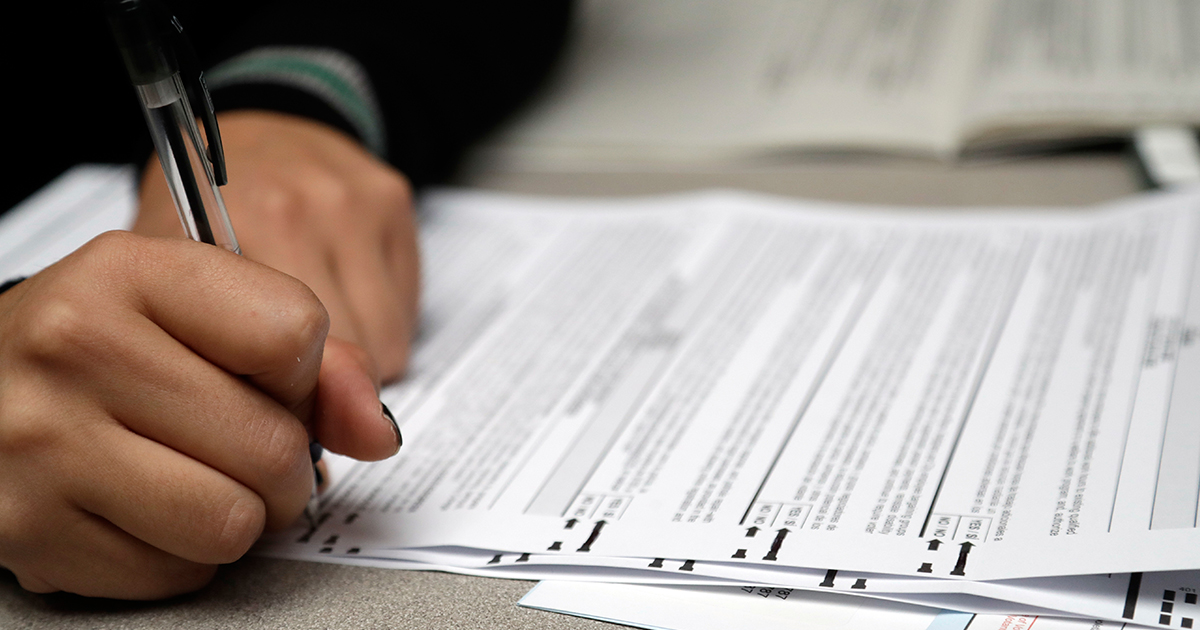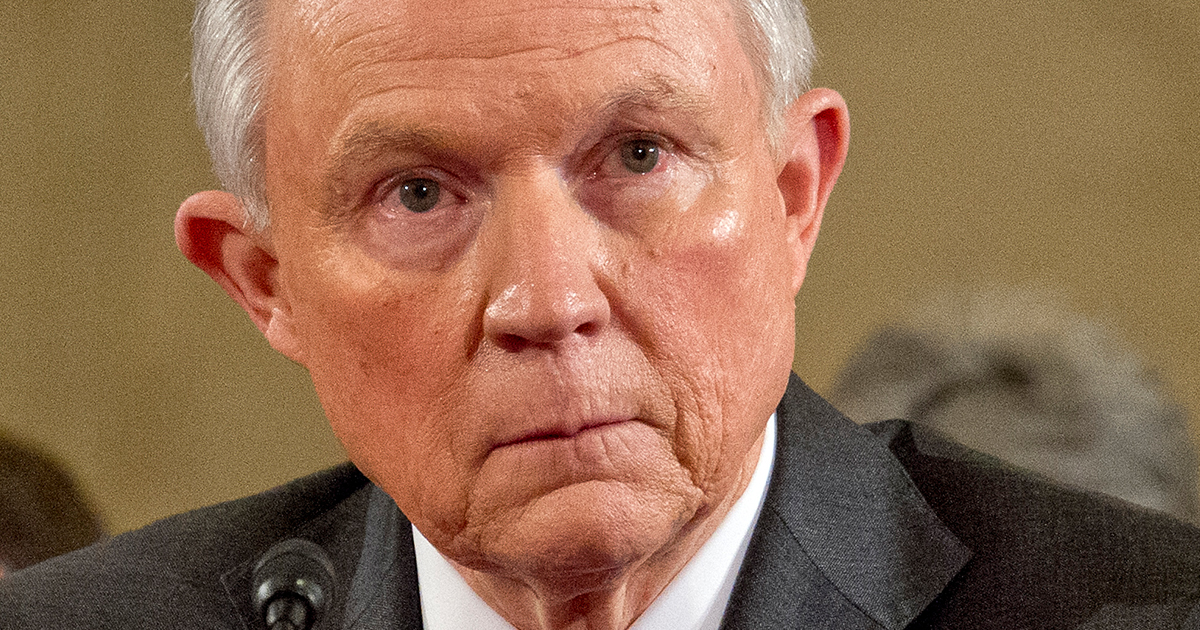The Government Reverses Position on Texas Voter ID Law

By:
The U.S. Department of Justice just announced a policy shift in regards to a federal court case looking at a 2011 Texas voter ID law on Monday. After initially calling the law racially discriminatory, the federal government is now withdrawing from that position, according to voting rights advocates.
For the last six years, the government has sided with voting rights groups that have argued that the effect and intent of the law was to suppress black, Latino, and low-income voters. But under the leadership of Attorney General Jeff Sessions — a strong proponent of voter ID laws — the DOJ is reversing its position the day before a federal hearing is scheduled.
Here's what you need to know about Texas' voter ID law.
- In 2011, Texas lawmakers enacted one of the nation's strictest voter ID laws, which requires some form of photo identification in order to cast a ballot in an election.
- The law allows voters to use a concealed handgun carry license to vote, but student IDs were not considered acceptable photo identification, according to the Brennan Center for Justice.
- Texas has been embroiled in numerous legal challenges to the law, with a district court and federal appeals court determining that the voter ID requirements had the effect of suppressing voters from poor and minority residents. The 5th Circuit Court of Appeals is expected to weigh in on whether or not the law was intended to discriminate on Tuesday.
- Last week, the appeals court denied a request from the DOJ and the state of Texas to delay their judgment on the law's intent until Republican lawmakers were able to amend it, Talking Points Memo reported. But the court denied that request.
- More than 600,000 Texans — mostly minorities — lack the photo identification required by the law, the federal appeals court found in 2016.
A growing body of evidence indicates that voter ID laws are discriminatory.
 AP/Marcio Jose Sanchez - apimages.com
AP/Marcio Jose Sanchez - apimages.com
Several studies — including one released last month by researchers at the University of California, San Diego (UCSD) — have established that voter ID laws disproportionately affect minorities and low-income Americans, while benefiting Republican candidates. The Atlantic summarized the UCSD study:
"The researchers used this dataset to compare turnout in elections where strict voter ID had been implemented versus those where it hadn’t, and measured the gap in turnout between races. Using this refined methodology, researchers found that strict ID laws doubled the turnout gap between whites and Latinos in the general elections, and almost doubled the white-black turnout gap in primary elections."
An additional obstacle for Texas residents is the distance they'd have to travel in order to obtain an approved photo ID. In 2012, Texas state Sen. Carlos Uresti (D) argued that his constituents would have to drive 120 miles to get their IDs, The Houston Chronicle reported and added:
"About 80 Texas counties have no DPS driver's license office, which could make it difficult for Texans without a driver's license to get a Voter ID card. Low-income neighborhoods in metro areas also have few DPS offices."
The Justice Department's sudden reversal in the case aligns with Sessions' longstanding support for voter ID laws.
 AP/Ron Sachs - apimages.com
AP/Ron Sachs - apimages.com
As a former U.S. attorney and lawmaker, Sessions has repeatedly sounded the alarm about voter fraud — an exceptionally rare occurrence — citing it as justification for voter ID laws. He's also opposed allowing convicted former felons to vote, stating "I don't think American policy is going to be better informed if we have a bunch of felons in the process."
The White House did not immediately respond to a request for comment.
